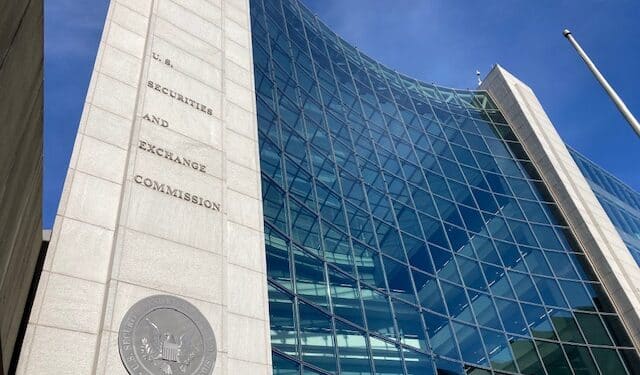For the first time, the U.S. Securities and Exchange Commission (SEC) awarded a whistleblower after the whistleblower appealed a denial before the U.S. Court of Appeals.
On April 3, the SEC issued an order granting a whistleblower award of more than $2,000,000 to one whistleblower and an award of over $400,000 to another. Both whistleblowers voluntarily provided original information which contributed to a successful enforcement action.
Under the SEC Whistleblower Program, qualified whistleblowers are eligible to receive awards of 10-30% of the proceeds collected in the enforcement action connected with their disclosure.
Notably, the SEC had previously denied the second whistleblower’s award claim for the case in 2022. At the time, the SEC determined that the whistleblower was not eligible because their information was submitted by the general counsel of an entity owned by the whistleblower and there was “no evidence that the general counsel or other entity representatives actually represented [the whistleblower] in his individual capacity rather than the entity on the numerous occasions when they presented information to the SEC.”
Under SEC Rule 21F-13, whistleblowers whose award applications are denied are able to appeal a denial before the U.S. Court of Appeals. In this case, the whistleblower filed a timely appeal with the Court of Appeals for the Fifth Circuit.
According to the SEC, “In response to certain record evidence discussed in [the whistleblower’s] opening brief, the Commission sought and obtained a voluntary remand so that it could reconsider its determination that [the whistleblower] was not a whistleblower.”
Upon request for more information, the whistleblower provided “a new declaration from the entity’s general counsel that expressly states that the general counsel represented [the whistleblower] in [the whistleblower’s] personal capacity throughout the process of providing information regarding the Company to the SEC.”
Based on this supplemental declaration, the SEC determined that the whistleblower did in fact qualify for an award.
In awarding the whistleblower, the SEC also waived a TCR filing requirement, noting that “the better course is to grant a waiver for an untimely TCR because [the whistleblower] would be otherwise meritorious as he voluntarily provided original information to the Commission that significantly contributed to the success of the Covered Action.”
This award is the first time the SEC has awarded a whistleblower after that whistleblower appealed a denial before the U.S. Court of Appeals.
Since it was established in 2010, the SEC Whistleblower Program has been an immense success, awarding over $1.9 billion to whistleblowers for their role in exposing securities fraud.




